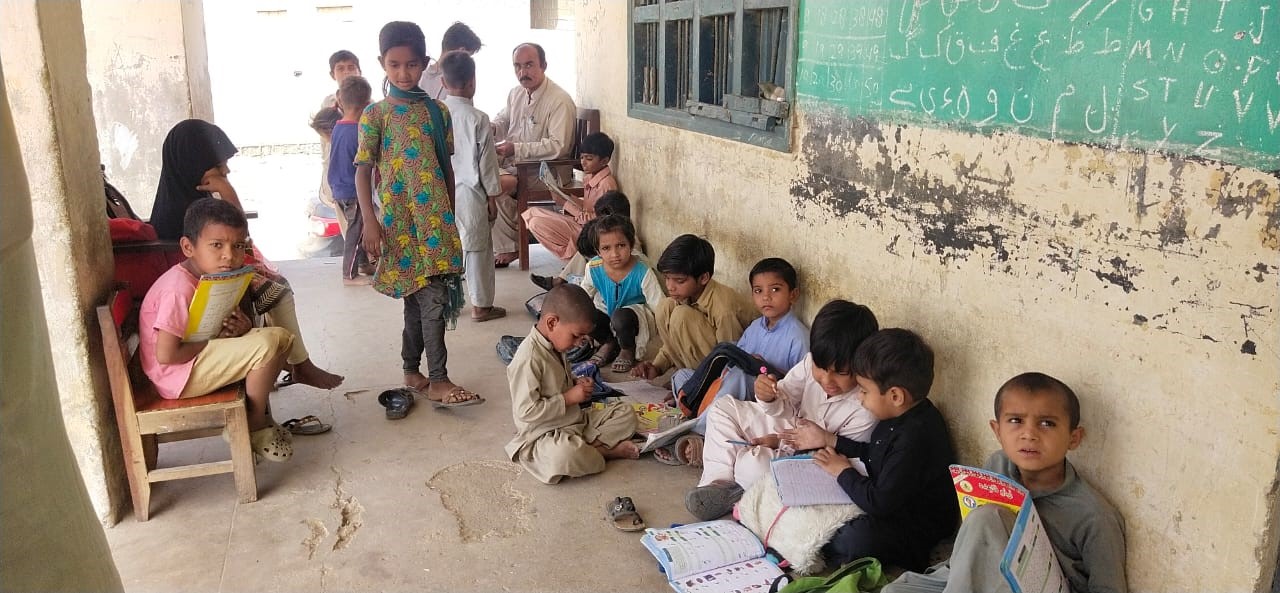INP-WealthPk
Sajid Irfan
The government needs to provide facilities to schools and upgrade the educational institutions to improve the quality of education in Pakistan, WealthPK reports.
The education sector is witnessing improvement but still needs the government’s attention to achieve the desired results. Many state-run schools in Khyber Pakhtunkhwa, Sindh and Baluchistan, in particular, lack various basic facilities. The government needs to provide the missing facilities to schools across the country.

Rahimullah Khan, the principal of a government school, told WealthPK that the education sector faced many issues, including inadequate budget, faulty examination system, lack of policy implementation, poor infrastructure, shortcomings in the training of teachers, low enrolment and high dropout rate.
He said that there were more than 183,000 primary schools in the country, with 507,000 teachers and 24 million students. The number of middle schools in the country stands at 48,000, with 466,000 teachers having 7.9 million students.
Rahimullah said that about 32,000 higher secondary schools were functional in the country, having 582,000 teachers and four million students. According to UNICEF, Pakistan has the world’s second-highest number of out-of-school children as about 22.8 million children between five and 16 years of age are getting a formal education in the country. They represent 44% of the total population in this age group.
There is a severe shortage of government schools in rural areas of Pakistan. Students in a village have to cover a distance of several kilometres to reach their school in another village. In many schools, teachers are also unwilling to work due to long distances and low salaries as there is no transportation facility for them. The government needs to increase the salaries of teachers so that they can meet their expenses.
The infrastructure of government schools is inferior. Most state-run schools in remote areas lack basic facilities like furniture, stationery, electricity and water. The state-run institutions need an appropriate budget for the maintenance of buildings while private schools charge high fees from the students, making it difficult for poor parents to enrol their children.
In order to enhance the skills and abilities of students, the government must provide them with basic facilities. Rahimullah said that nearly 5,000 government schools were closed in Sindh last year owing to a lack of teachers and funds. Now, these schools are used cattle pens by the local people.
He said that private educational institutions played an instrumental role not only in increasing literacy but also in improving the academic environment for students and teachers. He said that the private sector made a substantial contribution to the eradication of illiteracy in emerging economies. Private schools, if well-managed, have the potential to improve the standard of education in Pakistan.
He said that a sound system for conducting tests, better infrastructure, and a low rate of teacher absenteeism were just a few of the factors that made private schools more appealing to parents than public ones. He said reforms were necessary to improve the standard of government schools in the country.
He said rules and regulations should be enforced strictly besides enhancing the infrastructure of schools and methods of teaching. An effective curriculum policy, check-and-balance system to ensure the presence of teachers at schools, better seating arrangements and provision of basic facilities like stationery, furniture and clean drinking water are also necessary for improving the school standard,” Rahimullah told WealthPK.
Credit : Independent News Pakistan-WealthPk



